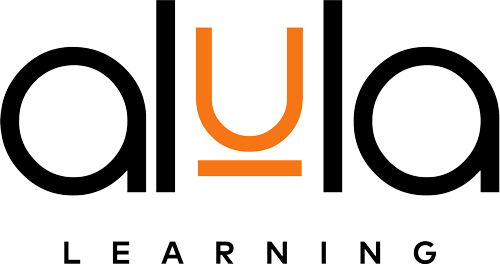Best Courses For Instructional Designers in 2024

Best Courses For Instructional Designers: Instructional designers have become indispensable in today’s rapidly evolving educational industry. Their primary mission is to ensure that educational materials, methods, and activities are purposeful, engaging, and conducive to effective learning. For this reason, it is essential for aspiring instructional designers to master the skills of analyzing, designing, developing, and evaluating educational materials and strategies. With the increasing demand for skilled instructional designers, many professionals are seeking comprehensive training programs to enhance their skills. In this article, we highlight the five best online courses for instructional design, explaining why each one stands out. Best Courses For Instructional Designers We have selected these five courses based on their stellar reputations, high-quality curricula, industry recognition, and the expertise of their instructors. Let’s dive in! Alula Learning Training for Instructional Designers Alula Learning offers a premier training program designed specifically for aspiring and current instructional designers. This comprehensive course is structured to provide you with the essential skills needed to excel in the field of instructional design. It is one of the best courses for instructional designers in the market and the most affordable of all we found during our research. Key Details of the Alula Learning Training Program: Instructional Design Frameworks and Methodologies: Gain a deep understanding of various instructional design frameworks and methodologies. Course Development: Learn the intricacies of building a course from start to finish. Authoring Tools: Master the use of Articulate Storyline and other authoring tools. Gamification: Understand game design principles and how they enhance learning experiences. Program Structure: The program is run in a blended format – partly online and partly in-class. There are 8 modules on the program spread over 8 weeks: 32 days online and 8 days in-class. The program is designed to offer flexible learning options, accommodating participants from around the globe. You can join us from anywhere. The program begins on August 19th, 2024. Exclusive Early-Bird Discount: Take advantage of the 30% early-bird discount, reducing the fee from 250,000 Naira to just 175,000 Naira. How to Register: To register, call: 07059030944 or send an email to [email protected]. You can also click the link below to register now! Register Now The Instructional Design Bootcamp The Instructional Design Bootcamp is an immersive online course tailored to help instructional designers achieve financial independence and career success. This program provides over thirty rounds of detailed, actionable feedback on various portfolio projects, ensuring participants develop a strong foundation guided by seasoned instructional designers and hiring managers. Key Features: – In-Depth Feedback: Receive comprehensive feedback on portfolio deliverables, enabling you to refine your skills and produce top-quality work. – 1-on-1 Support: Benefit from personalized guidance and mentorship from professionals with over two decades of experience in the field. – Skill Enhancement Opportunities: Participate in specialized sessions, such as a storyline project lab and a flagship project creation workshop, to sharpen your abilities. – Career Development: Learn how to craft an outstanding portfolio and resume, ace instructional design interviews, and generate valuable leads on LinkedIn. This bootcamp is ideal for current or former educators seeking to transition into corporate instructional design roles. It offers a hands-on online experience focused on creating engaging, story-driven projects and enhancing visual design skills. The program also emphasizes networking strategies to attract recruiters. Program Structure: – Duration: Approximately five months. – Commitment: Around five hours per week, with flexible options available. – Cost: $7,400 USD, which includes lifetime access to the program and its resources. The Instructional Design Bootcamp equips participants with the knowledge and tools needed to excel in the field, fostering both personal and professional growth. Introduction to Instructional Design Harvard University’s Professional Learning Lab offers a comprehensive and immersive “Introduction to Instructional Design” course. This program aims to equip participants with the fundamental principles and practices of instructional design, providing a robust foundation for creating effective learning experiences. Course Overview: This introductory course is designed for educators, instructional designers, and professionals involved in developing educational materials. It blends theoretical knowledge with practical application through a mix of hands-on exercises and interactive discussions, all guided by experienced instructional design experts. Key Learning Outcomes: – Theoretical Foundations: Gain a deep understanding of instructional design principles and methodologies. – Practical Application: Learn to bridge the gap between theory and practice by integrating media and technology into instructional design. – Technology Integration: Explore how digital tools and multimedia resources can enhance learner engagement and comprehension. – Comprehensive Syllabus: The curriculum covers analyzing learner needs, designing learning objectives, creating engaging educational materials, and assessing, evaluating, implementing, and iterating on instructional strategies. Ideal Participants: This course is ideal for educators, instructional designers, curriculum developers, and trainers seeking to enhance their skills in instructional design. Course Structure: – Project-Based Learning: Submit a project every two weeks to apply what you’ve learned in real-world scenarios. – Instructor-Led Pace: Benefit from structured guidance and support from expert instructors. – Additional Resources: Access video transcripts and other supplementary materials to support your learning journey. Cost: The fee for this online instructional design course is $3,100. This course not only provides the foundational knowledge necessary for effective instructional design but also offers practical, hands-on experience to help participants immediately apply their new skills. Join this program to advance your career and create impactful learning experiences. Build Your Skills as an Instructional Designer LinkedIn Learning offers “Build Your Skills as an Instructional Designer,” an introductory course designed to provide participants with a robust foundation for a career in instructional design. This short, eight-hour course covers the essential concepts and techniques needed to excel in the field. Course Overview: This course provides a comprehensive introduction to instructional design, covering both conceptual and theoretical foundations. Participants will learn how to use video to create engaging learning experiences, support eLearning, online training, and corporate training. Key Learning Outcomes: – Foundational Knowledge: Gain an understanding of the core principles of instructional design. – Practical Skills: Learn to design a learner’s journey using video and other multimedia tools. – eLearning Essentials: Understand the key
Top Trends in Instructional Design in 2024

Top Trends in Instructional Design in 2024: Instructional design is an ever-evolving field, constantly adapting to technological advancements, pedagogical research, and the changing needs of learners. As we navigate through 2024, several trends are shaping the way we approach instructional design. These trends not only enhance learning experiences but also address the diverse needs of modern learners. Here are some of the top trends in instructional design for 2024. Artificial Intelligence and Machine Learning Artificial Intelligence (AI) and Machine Learning (ML) are transforming instructional design by providing personalized learning experiences. AI can analyze learners’ behaviors, preferences, and performance to tailor content and activities to individual needs. This level of personalization helps in keeping learners engaged and improving their overall learning outcomes. To stay ahead in this AI-driven world, consider joining Alula Learning Training for Instructional Designers. This program will equip you with the skills to leverage AI in your instructional designs, ensuring you create impactful, personalized learning experiences. Registration is now open, and we’re offering an exclusive early-bird discount of 30%! Don’t miss this chance to invest in your future at just 175,000 Naira instead of 250,000 Naira. Microlearning Microlearning continues to gain popularity as a way to deliver content in small, digestible chunks. This method aligns with the decreasing attention spans of modern learners and the demand for on-the-go learning. By breaking down information into bite-sized lessons, learners can absorb and retain information more effectively, leading to better knowledge retention and application. Immersive Learning Experiences Virtual Reality (VR) and Augmented Reality (AR) are being increasingly integrated into instructional design. These immersive technologies provide hands-on learning experiences that are otherwise difficult to replicate in a traditional classroom setting. Whether it’s a medical student practicing surgery in a virtual environment or an engineering student exploring a 3D model of a complex machine, VR and AR enhance experiential learning. Gamification Gamification involves incorporating game elements into learning environments to motivate and engage learners. By adding points, badges, leaderboards, and other game-like features, instructional designers can make learning more interactive and fun. Gamification also encourages healthy competition and rewards progress, which can significantly boost learner motivation. Data-Driven Decision Making With the proliferation of learning management systems (LMS) and other educational technologies, there is an abundance of data available on learners’ performance and engagement. Instructional designers are leveraging this data to make informed decisions about content development, delivery methods, and assessment strategies. Data analytics helps in identifying learning gaps, understanding learner preferences, and continuously improving the learning experience. Alula Learning Training will teach you how to harness the power of data-driven decision-making in instructional design. Learn to use analytics tools to enhance your design strategies, making your educational programs more effective and responsive to learner needs. Focus on Soft Skills While technical skills remain crucial, there is a growing emphasis on developing soft skills such as communication, collaboration, critical thinking, and emotional intelligence. Instructional design is increasingly incorporating activities and assessments that help learners develop these essential skills. This holistic approach ensures that learners are well-rounded and prepared for the complexities of the modern workplace. Mobile Learning The widespread use of smartphones and tablets has made mobile learning (m-learning) a critical component of instructional design. Learners expect to access content anytime, anywhere. Instructional designers are creating mobile-friendly content that is easily accessible on various devices, ensuring a seamless learning experience across different platforms. Blended Learning Models Blended learning, which combines online and face-to-face instruction, continues to be a preferred approach in many educational settings. This hybrid model offers the flexibility of online learning while maintaining the benefits of in-person interaction. Instructional designers are exploring innovative ways to balance and integrate both modes of learning to create cohesive and effective learning experiences. Sustainability and Inclusivity Sustainability and inclusivity are becoming central considerations in instructional design. Sustainable practices, such as reducing the use of printed materials and leveraging digital resources, are being adopted. Additionally, there is a strong emphasis on creating inclusive learning environments that cater to diverse learners, including those with disabilities. This involves designing content that is accessible and accommodating different learning styles and needs. Continuous Professional Development for Educators To keep up with these trends, continuous professional development for educators is essential. Instructional designers are creating professional development programs that help educators stay updated with the latest technologies, pedagogical strategies, and best practices. This ensures that educators are well-equipped to deliver high-quality instruction and support their learners effectively. Stay at the forefront of instructional design with Alula Learning Training. Our program offers continuous professional development to help you stay updated with the latest trends and best practices in the field. Don’t miss out on the opportunity to enhance your skills and advance your career. Top Trends in Instructional Design in 2024 Conclusion The field of instructional design is dynamic and constantly evolving. The trends in 2024 reflect a strong emphasis on personalization, engagement, accessibility, and continuous improvement. By embracing these trends, instructional designers can create effective, engaging, and inclusive learning experiences that meet the diverse needs of modern learners. As technology continues to advance and educational needs evolve, staying abreast of these trends will be crucial for anyone involved in instructional design. Don’t miss your chance to stay ahead in your career. Join the Alula Learning Training for Instructional Designers and unlock new opportunities in 2024! Click here to register now! Top Trends in Instructional Design in 2024
Continuous Learning Culture; Why it is Important in Learning Design

Continuous Learning Culture; Just as food sustains our bodies, knowledge and perpetual learning invigorate our minds. Lifelong learning is an indispensable asset for all professions and organizations, particularly in Learning Design, where it holds a central position. Continuous learning is not just an option in this digital age it’s a necessity. For this reason, Alula Learning is organizing a training for learning design professionals and people who are looking to break into the learning design industry. By signing up for the Alula Training, you’ll gain access to cutting-edge methodologies and tools that are crucial for staying at the forefront of Learning Design today. More details on that in this post. The Significance of a Continuous Learning Culture in Learning Design In today’s world, continuous learning is crucial for nurturing critical thinking and cultural awareness. For learning designers, it’s essential to keep abreast of the latest educational theories, technologies, and methods. A life devoid of ongoing learning is unimaginable, especially in a field devoted to cultivating knowledge and growth in others. “The only thing that is constant is change.” – Heraclitus Change is inevitable in careers, personal lives, communities, and organizations. Lifelong learning is a potent tool to navigate change effectively. For learning designers, this means constantly adapting to new educational technologies, evolving learner needs, and innovative teaching strategies. The Alula Learning training plays a pivotal role in equipping learning designers with the latest educational theories and technologies. This program ensures you stay relevant and adaptable, ready to meet new challenges and opportunities in the field. Enroll now to keep your skills sharp and your career on track! Defining Continuous Learning Continuous learning is the proactive pursuit of knowledge and skills to enhance your abilities and create future opportunities. In Learning Design, it involves ongoing professional development to prevent stagnation and achieve your full potential as an educator and innovator. 7 Advantages of Lifelong Learning for Learning Designers With knowledge now widely accessible, failing to take advantage of this can render one obsolete. Here are seven reasons why you should never cease learning, especially in Learning Design. 1. Maintain Relevance Stay current with industry trends and continually update your skill set to remain valuable. In the fast-paced realms of technology and education, learning new concepts is vital for staying relevant. 2. Be Ready for the Unexpected Lifelong learning equips you to handle unforeseen changes, such as shifts in educational standards or the sudden need for online learning platforms. By consistently learning, you’ll be better prepared to step out of your comfort zone and seize new opportunities. 3. Enhance Your Profile Constant learning leads to continuous improvement and career advancement. This ongoing development can earn you recognition from colleagues and managers. As a learning designer, showcasing your commitment to learning can unlock advanced roles and innovative projects. 4. Confidence Through Competence Acquiring new knowledge instills a sense of accomplishment, boosting your confidence in your abilities. This confidence allows you to tackle challenges and create more impactful learning experiences. 5. Spark New Ideas Learning new skills opens up new opportunities and helps you find innovative solutions to problems. Creativity is essential in Learning Design, where fresh approaches can significantly enhance learner engagement and success. 6. Widen Your Perspective Continuous learning broadens your mind and shifts your attitude by building on your existing knowledge. The more you learn, the better you become at seeing multiple sides of a situation, which is crucial in designing inclusive and effective learning experiences. 7. Inspire Others Continuous learning isn’t solely about personal gain. It develops your leadership skills, enabling you to foster a culture of lifelong learning in others. As a learning designer, you have the power to inspire and motivate learners to pursue further education and personal growth. Applying a Continuous Learning Culture in Your Daily Life Incorporating continuous learning into your daily routine can transform your professional and personal life. Here are some practical steps to ensure you make the most of learning opportunities every day: Set Learning Goals: Establish clear, achievable learning objectives for yourself. Whether it’s mastering a new software tool or understanding a complex theory, having goals will keep you focused and motivated. Create a Learning Schedule: Dedicate specific times in your day or week for learning activities. Consistency is key to making lifelong learning a habit. Use Learning Apps and Platforms: Utilize educational apps and platforms like Duolingo for languages, Khan Academy for various subjects, or LinkedIn Learning for professional skills. Engage in Discussions: Join online forums, study groups, or professional networks to discuss new ideas and gain different perspectives. Engaging with others can deepen your understanding and spark new interests. Practice Mindfulness and Reflection: Take time to reflect on what you’ve learned. Mindfulness practices can help consolidate new knowledge and provide insights into how it applies to your work and life. How to Measure Your Learning Progress Tracking your learning progress helps maintain motivation and ensures you’re moving towards your goals. Here’s how you can measure your progress: Set Milestones: Break down your learning goals into smaller, manageable milestones. Celebrate reaching each milestone to keep yourself motivated. Maintain a Learning Journal: Document your learning experiences, key takeaways, and any challenges you face. This practice helps track your progress and reflect on your growth. Seek Feedback: Regularly ask for feedback from peers, mentors, or managers. Constructive feedback can guide your learning journey and highlight areas for improvement. Test Your Knowledge: Take quizzes, write essays, or engage in practical exercises related to your learning topics. Testing your knowledge helps reinforce what you’ve learned and identify any gaps. Leveraging Technology for Continuous Learning Culture Technology offers numerous tools and resources to facilitate continuous learning. Here are some ways to leverage technology in your learning journey: Online Courses and Webinars: Enroll in online courses or attend webinars on platforms like Coursera, Udemy, or edX to learn new skills and earn certifications. Podcasts and Audiobooks: Listen to educational podcasts and audiobooks during your commute or workout to make the most of your time. Interactive Learning
GET is LIVE in Enugu
The Graduate Employability Training is now LIVE in Enugu State, thanks to the partnership between Nigerian Young Professionals Forum (NYPF) Enugu and Alula Learning. Thanks to the partnership , this transformative program will be kicking off on the 22nd of July 2024. The program will be bringing innovative career development solutions to graduates across the state. The Graduate Employability Training is designed to empower participants with the tools and skills needed to thrive in today’s competitive job market. Graduates will benefit from hands-on workshops, industry insights, and expert-led sessions tailored to boost their employability. Participants can expect to learn: This training is not just about finding a job but about equipping graduates with the mindset and skillset to navigate their careers confidently. If you’re a fresh graduate in Enugu and ready to take the next step in your professional journey, this is your chance to learn, grow, and succeed with NYPF and Alula Learning!
